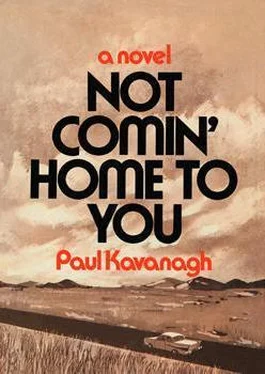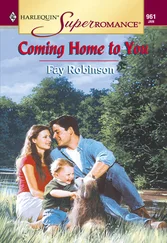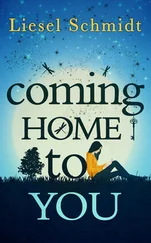Paul Kavanagh - Not Comin' Home to You
Здесь есть возможность читать онлайн «Paul Kavanagh - Not Comin' Home to You» весь текст электронной книги совершенно бесплатно (целиком полную версию без сокращений). В некоторых случаях можно слушать аудио, скачать через торрент в формате fb2 и присутствует краткое содержание. Город: New York, Год выпуска: 1974, ISBN: 1974, Издательство: G.P. Putnam's Sons, Жанр: Криминальный детектив, на английском языке. Описание произведения, (предисловие) а так же отзывы посетителей доступны на портале библиотеки ЛибКат.
- Название:Not Comin' Home to You
- Автор:
- Издательство:G.P. Putnam's Sons
- Жанр:
- Год:1974
- Город:New York
- ISBN:978-0-399-11357-4
- Рейтинг книги:3 / 5. Голосов: 1
-
Избранное:Добавить в избранное
- Отзывы:
-
Ваша оценка:
- 60
- 1
- 2
- 3
- 4
- 5
Not Comin' Home to You: краткое содержание, описание и аннотация
Предлагаем к чтению аннотацию, описание, краткое содержание или предисловие (зависит от того, что написал сам автор книги «Not Comin' Home to You»). Если вы не нашли необходимую информацию о книге — напишите в комментариях, мы постараемся отыскать её.
Not Comin' Home to You — читать онлайн бесплатно полную книгу (весь текст) целиком
Ниже представлен текст книги, разбитый по страницам. Система сохранения места последней прочитанной страницы, позволяет с удобством читать онлайн бесплатно книгу «Not Comin' Home to You», без необходимости каждый раз заново искать на чём Вы остановились. Поставьте закладку, и сможете в любой момент перейти на страницу, на которой закончили чтение.
Интервал:
Закладка:
“I don’t guess I’ll sleep proper till they get the man who did this.”
“You work hard all your life and somebody comes and takes it all away from you.”
“Must have sold twenty guns the first hour this morning. And ammunition, I can’t keep it in stock.”
“Hanging’s too good for him.”
“When a nation turns its back on God—”
“Hanging’s too good for him.”
“Animals.”
“Hanging’s too good for him.”
“Hanging’s too good for him.”
“Hanging’s too good for him.”
Ten
The cabin was small and primitive. There was room for the double bed and the chest of drawers and not much more. The bathroom was in the same category of contradictions as green blackboards and plastic glasses. You couldn’t bathe in it. There was no tub, no shower, only a washbowl and a toilet. Drips from the two faucets had worn iron-red channels in the porcelain of the sink. There was no door to the bathroom, incredibly enough, and she kept having to use the toilet. She didn’t like doing this, not with him stretched out on the bed just a few yards away, but her bowels gave her no choice. She knew how fastidious he was and hoped he would not lose respect for her.
But he seemed completely oblivious. He was stretched out on his back with his eyes closed. He had taken off his clothes and the bedsheet covered him almost to the neck. His hands were outside of the sheet. She found herself frequently looking at his hands and arms, and it was as if they were disembodied, lying there on either side of a white cotton mound with which they had no real connection.
The cabin was one of a dozen just beyond Thedford, about a hundred and forty miles northwest of Grand Island. It had taken them two and a half hours to cover the distance, and she could barely remember the ride. There had been little in it to remember. He drove while she sat beside him. Neither of them talked much.
The interval between their violent lovemaking and the drive was blurred in her recollection in another way. She remembered the details well enough — going upstairs, putting things into a suitcase, pausing to comb her hair and wash her hands and face. Returning reluctantly to the first floor and trying to walk through the living room without looking at the bodies, but being unable to avoid staring at each in turn. She remembered all of this, and yet somehow there was a haze around her memory like thin clouds around the moon. Perhaps it was that she herself had been in a daze during that time, moving around and performing tasks but not really entirely there.
When she was ten a teacher had pushed a door open suddenly while she was walking past it, and the heavy oak had struck her with force in the temple. She was taken immediately to the school nurse, who had her lie down for a few moments, gave her the inevitable aspirin, peered curiously into her eyes and nose and ears, made her gag on a wooden tongue depressor, and at last pronounced her fit as a fiddle and sent her back to class. She remained in school that day until the final bell, participating in class exactly as she had always done. When school let out she walked home, had a glass of milk and a cookie, and went to her room to lie down. She slept for four hours, and when she awoke she was perfectly all right, the same as ever, but the memory of that interval between sustaining the concussion and going to bed was blurred much as this present memory was. As though she had not been entirely herself during that particular period of time.
She sat on the edge of the bed now and looked at him. A few hours ago he had killed her father and her mother and her grandmother while she watched with — what? She did not even know. And now she looked at him and knew that she was in love with him and did not know what it all meant.
She had hated her father. And her mother. And if she had not hated Granny, she had certainly felt nothing but contempt for the woman, and had frequently thought that she would be better off dead than alive. Well, she was dead now. They were all dead, the three of them.
He did things with such instant assurance. He never hesitated. He had been very decent with her father, had spoken so softly and politely, and then when her father hit him and was going to kill him, then all at once there was a gun in his hand and before she really knew what was happening all three of them were dead. He would just act, suddenly and surely, and things began and ended in a flash.
And then afterward, while the three of them lay there—
She made her mind skip that part for now. She thought instead about the end of the ride, the sudden screech of brakes, the way she heaved against her seat belt as he spun the car to the left and onto the cinder driveway that led to the tourist cabins. “We’re stopping here. I can’t drive any more tonight. I have to crash.”
“It looks sort of rundown,” she had offered. “Do you want to wait and try the next place down the road? It might not be very nice here.”
“Well stay here.”
“All right.”
“I’ll go and register. You get down so they can’t see you, see? You’re the one they’ll be looking for.”
“Do you think—”
“Not yet, but sooner or later, and then they’ll be showing your picture around. And somebody might remember seeing you. Nobody knows to look for me.”
He had parked the car in shadows, left her there while he went into the office unit. She waited nervously for him and thought about what he had said. They would be looking for her. They had stopped at her house to talk her parents out of calling the police, so that they would not have to worry about people looking for her, and now her parents and grandmother were dead and they would be searching for someone far more important to them than a teenage runaway.
But what could he have done? Her father was going to beat him up, possibly beat him to death knowing the man’s temper and his physical strength. He could only defend himself with the gun, and—
She had never known he had a gun. Actually there was not much she did know about him. And yet she knew him, and he knew her, in ways no one had ever known either of them before. She was sure of this.
In their cabin he had gritted his teeth at the appearance of the place, then cursed quietly but thoroughly at the lack of a shower. He sponged himself at the sink, shaved, brushed his teeth. Then drank some cough medicine and took a red pill and stretched out on the bed.
She thought about going to sleep herself and knew it was impossible. She was exhausted, drained, and yet she had never been more intensely awake in her life. One of those little red pills of his might let her rest, but she didn’t like the idea of taking one. There were kids in school who took pills, uppers and downers and things she didn’t know the name of. There were kids who smoked grass, and there was talk that some of the seniors took acid trips. But she had never taken anything stronger than the coffee her father had forbidden her.
It was hard for her to sit still but the cabin offered no room to pace the floor. She went to the bathroom and washed her hands and face again. There was an unframed square mirror a foot square over the washbowl. She looked into it and tried to read something in the face reflected there. She felt that she should be altered in some way by what she had experienced, but her face looked as it had always looked to her.
There was no television set, but on top of the chest of drawers was an old radio. You had to put a quarter in it for a half hour’s listening.
She went over to the bed and said, “Would it be all right if I played the radio?”
He didn’t answer, and she decided not to risk waking him. She sat down again and had gone on to think of something else when he said, “Go ahead and play it. It won’t bother me.”
Читать дальшеИнтервал:
Закладка:
Похожие книги на «Not Comin' Home to You»
Представляем Вашему вниманию похожие книги на «Not Comin' Home to You» списком для выбора. Мы отобрали схожую по названию и смыслу литературу в надежде предоставить читателям больше вариантов отыскать новые, интересные, ещё непрочитанные произведения.
Обсуждение, отзывы о книге «Not Comin' Home to You» и просто собственные мнения читателей. Оставьте ваши комментарии, напишите, что Вы думаете о произведении, его смысле или главных героях. Укажите что конкретно понравилось, а что нет, и почему Вы так считаете.












